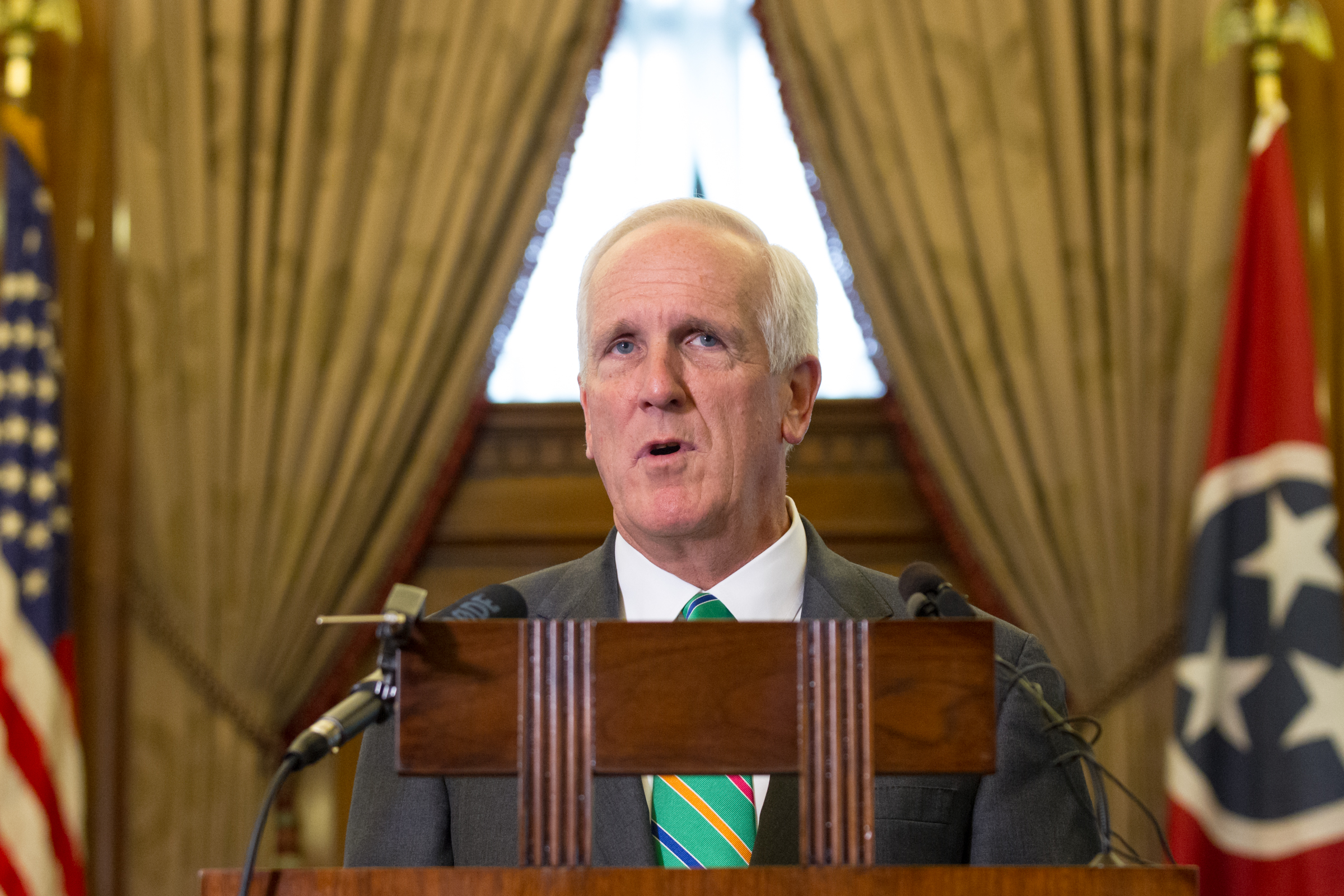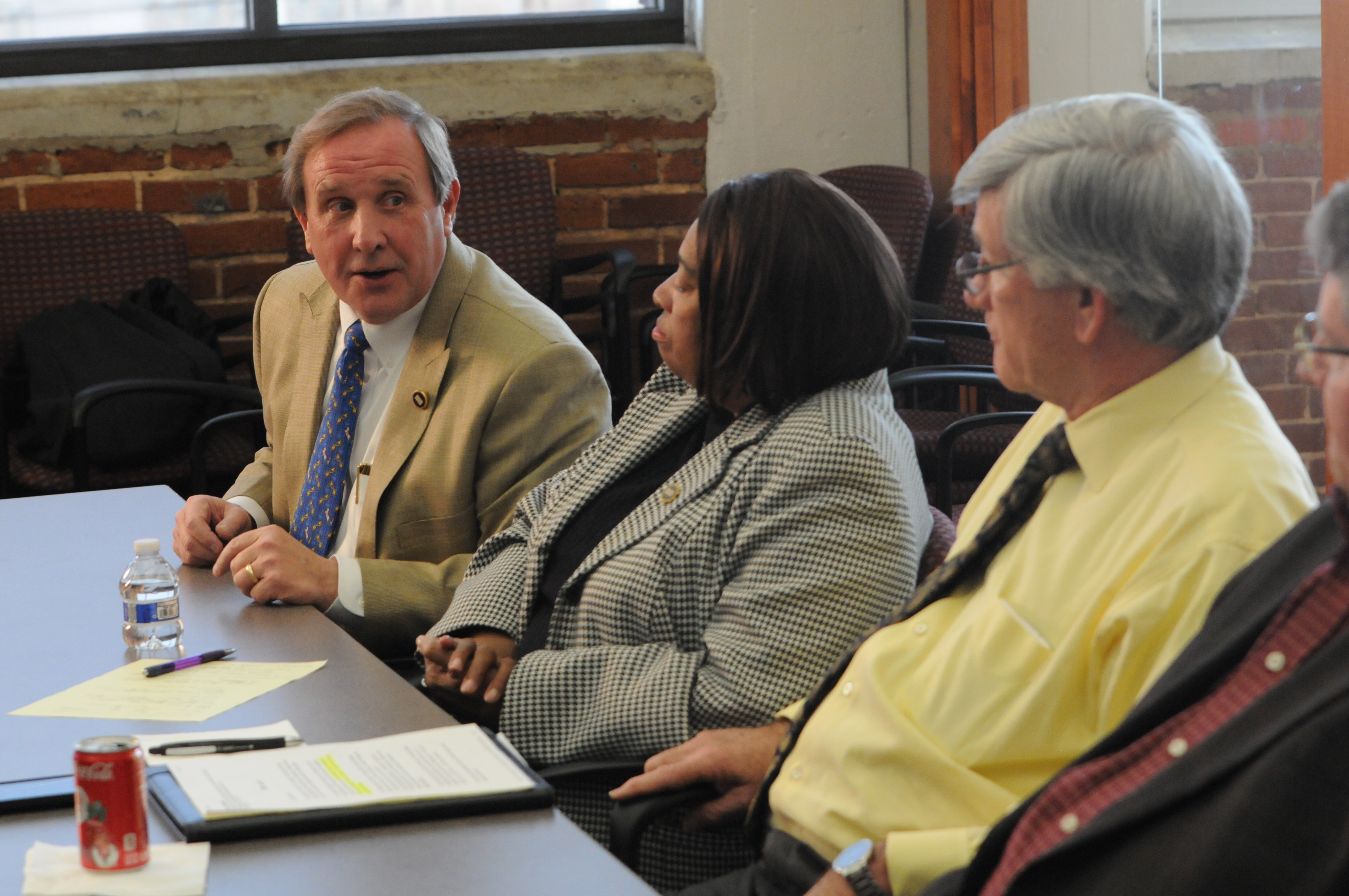They're fighting it tooth and toenail. They just don't want sunshine."
Public hospitals across Tennessee are quietly fighting a bill that would tighten restrictions on their ability to hold private meetings -- local lawmakers' response to Erlanger Health System's closed-door discussions to award $1.7 million in executive bonuses last year.
"They're fighting it tooth and toenail," said state Sen. Todd Gardenhire, R-Chattanooga, who sponsored the Senate version of the bill. Gardenhire said hospitals across the state have contacted him to protest the bill.
"They just don't want sunshine," he said, referring to the state open meetings rule known as the Sunshine Law.
But other state lawmakers say they are worried it could place hospitals in their own districts at a competitive disadvantage.
"I agree [the Erlanger case] was an egregious misuse of the closed meetings act," Sen. Joey Hensley, R-Hohenwald, said during a Senate Health and Welfare Committee meeting last week.
"But I'm concerned if we pass this it will adversely affect some of our other public hospitals. I have a large public hospital in my district that is very concerned that they are competing against private hospitals."
The bill, which will be taken up by the House State Government Subcommittee today, stems from the Erlanger board's Dec. 4 vote to award performance-based incentives to 99 managers after discussing the matter in closed meetings before vote.
Following a swell of outrage from local lawmakers, state Attorney General Herbert Slatery III released an opinion in January stating that for public hospital boards to discuss salaries and incentives in closed meetings violates the open meetings law.
Erlanger trustees since have worked to mend relations with lawmakers. They also rehashed executive compensation and incentives in a more than three-hour-long public meeting in February. A potential "re-vote" on the bonuses will likely be addressed at the board's April meeting, board Chairman Donnie Hutcherson said Friday.
"We are certainly aware of Senator Gardenhire's bill currently being considered in the Senate," Erlanger spokeswoman Pat Charles said in a statement. "We feel, as do other public hospitals in the state, that there are certain strategic issues that need to be discussed in non-public sessions. The majority of our Board of Trustees business is conducted in public, as it should be."
Still, Gardenhire has moved ahead with the bill, whose House sponsor is Rep. Mike Carter, R-Ooltewah.
Since 2008, Tennessee public hospitals have been allowed to discuss "marketing strategy and strategic plans" behind closed doors so their private-sector competitors are not given an unfair advantage.
Before then, public hospitals often found themselves hamstrung, said Craig Becker, president of the Tennessee Hospital Association.
"There were cases in which a physicians group would hear what a hospital was planning and would start doing it themselves," Becker said. "A hospital would say, 'We want to buy this land,' and the price of the land would go up."
Gardenhire's original bill sought to do away with closed meetings for public hospitals. But after "everyone across the state with a public hospital in their district got up in arms about it," Gardenhire said, he and other lawmakers redrafted the bill.
It now includes two sections: One clarifies that executive compensation cannot be discussed during closed meetings. The other requires a court reporter to take notes during closed meetings, which could be subpoenaed during a lawsuit.
Speaker Pro Tempore Sen. Bo Watson, R-Hixson, a co-sponsor of the bill, said he wanted language about keeping minutes of the meetings after hearing multiple versions of what occurred during the closed Erlanger meeting.
"One's memory can fade with time and one's memory can also create inaccuracies or misrepresentations, creating conflict between the testimony of two separate individuals attending the same meeting," Watson said.
Deborah Fisher, director of the Tennessee Coalition for Open Government, said that the bill appears to "offer extra protection" against violating the law during closed meetings, and provides accountability for the attorneys who are supposed to assure compliance.
But Jennifer Albrecht, a lobbyist for government hospitals, said the bill could allow competitors to access information about what a hospital's "strengths and weaknesses are, how they can better compete, patient trends, if they were going to sell the hospital how much they may sell the hospital for," among other items important to keep under wraps.
Becker said that while clarifying what may not be discussed during closed meetings is good, recording minutes could make hospitals more vulnerable to "frivolous litigation."
Lawmakers expressed similar worries during the committee meeting last week.
"What would prevent a competitor hospital ... from obtaining the notes on marketing strategics and strategic plans that would put the government hospital at a competitive disadvantage?" asked Sen. Richard Briggs, R-Knoxville.
Gardenhire said only notes related to the litigation could be subpoenaed for a lawsuit.
Sen. Doug Overbey, R-Maryville, said the AG's strong opinion proved the existing law "did indeed work," and said that having a court reporter taking notes during meetings could be a "logistical nightmare."
Following Overbey's comments, Gardenhire agreed to revisit how the minutes would be recorded and bring a revised bill back to the Senate Health and Welfare Committee.
Contact staff writer Kate Belz at kbelz@timesfreepress.com or 423-757-6673.
Other Legislature news
* Despite hundreds of supporters at Capitol, Insure Tennessee dies again * Vote on measure to allow EPB to expand service area delayed until 2016 * School voucher bill passes in Tennessee House panel * Gov. Haslam adds money for teacher insurance to budget proposal* Court clerks could settle for late fees under proposed bill




